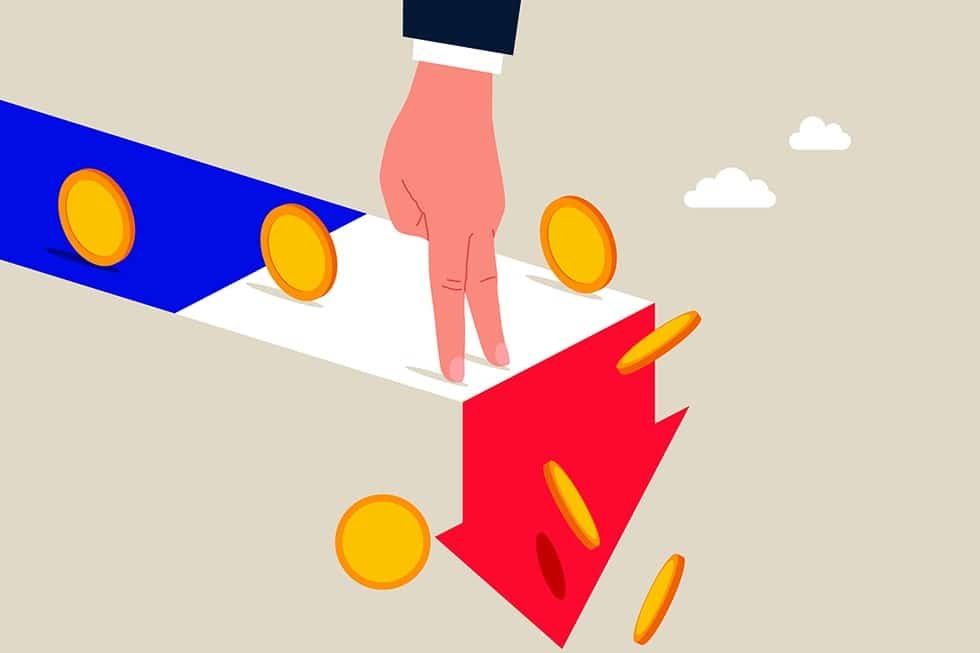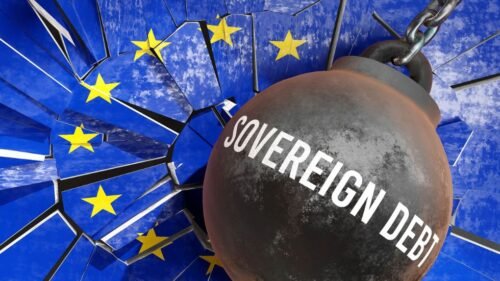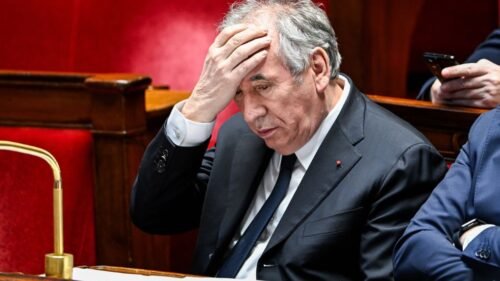In the award-winning 1971 movie The French Connection, detective Jimmy “Popeye” Doyle (played by American Actor Gene Hackman) spends hours chasing a Frenchman with a car full of heroin through New York traffic, wrecking half the city, yet never being able to catch him. Today, France is the Frenchman, its debt is the heroin, rating agency Fitch is Popeye and the bond market is the subway train that just seems to get away.
Fitch finally pulled the trigger, downgrading France’s credit rating from “AA-” to “A+”. But in markets, everyone’s been watching this chase scene for years — and most traders already knew France carried a truckload of unsustainable deficits. Other rating agencies – Standard & Poor’s, Moody’s and Morningstar DBRS – are likely to follow suit soon, as they have France’s rating currently “under review”.
France’s rating has deteriorated gradually since 2011, when it still held the coveted “AAA” rating. “A+” is not a disaster, but for a core Eurozone government, it is worrying. This is especially troubling, as French debt is not trading like that of an “A”-rated country, but rather in line with “BBB”-rated issuers like Italy and Greece.
In debt markets, traders often refer to the “spread,” meaning the difference in yield between a “pristine” borrower, in this case Germany, and others.
OATs, BONOs and BTPs
The French ten-year government bond, known as “OAT” (Obligation Assimilable du Trésor), traditionally traded at a small spread over German “Bunds” (Bundesanleihen), between 0.25 and 0.5 percentage points.
In the past, Spanish (“BONO”) and Italian (“BTP”) government bonds had to pay significantly higher premia than French ones (one to three percentage points). Not anymore. Since the beginning of 2025, French government bonds traded “wider” than Spanish bonds and have almost caught up to Italian bonds. Paris currently has to offer higher yields than Athens.
In its credit review, Fitch expects France’s debt-to-GDP ratio to rise further from its current 113% to 121% by 2027. After repeatedly missing targets, the current fiscal deficit stands at almost 6% of GDP.
France and Germany used to be nearly identical in terms of their debt-to-GDP ratios; they followed each other closely from the early 1990s to the Great Financial Crisis of 2008/9. Since then, however, they have gone their separate ways. While Germany managed to reduce its debt levels, France kept piling on.
A government’s rating usually serves as a rating lid on national banks. In a severe financial crisis, banks would depend on the government’s ability to afford to bail them out. Therefore, domestic banks cannot carry a higher rating than the entity that is supposed to offer financial support.
Some institutions are prevented from dealing with single-A-rated banks due to counterparty risk considerations. BNP Paribas, the largest French bank, carries liabilities of more than €2.7 trillion, more than 90% of France’s GDP.
However, not all is lost; the cost of insuring against a default of France, so-called credit default swaps, remains subdued at 0.35% — more expensive than Germany (0.07%), but in line with the United States (0.35%).
Who is to blame?
France’s economic performance under President Emmanuel Macron has been less than stellar; his “report card” shows deteriorating conditions in most areas. The country has gone through several governments; former Prime Minister (PM) Bayrou recently lost a vote of confidence after proposing a large budget squeeze. Now, new PM Sébastien Lecornu must build consensus in a fractured assembly.
The French government has been generous to retirees. Pensioners now have higher incomes than working-level adults, a record among comparable countries. Retirement income has grown far more quickly than wages.
During his first term, Macron cut the corporate tax rate from 33.3% to 25%, lowered mandatory tax contributions paid by French companies and abolished the country’s wealth tax. France also struggles to reduce its overall social spending, which accounts for 32% of GDP, compared to an EU average of 26%.
Meanwhile, a few French families were able to accumulate significant wealth, led by Bernard Arnaud, Chairman and CEO of luxury goods company LVMH, with an estimated net worth of $200 billion.
What if French bond spreads blow out?
Failure to address the budget deficit would lead to further rating downgrades. Speculators and hedge funds are already betting on increasing spreads between French and German government bond yields. Rising yields would make French debt more expensive to finance, leading to a vicious circle.
Some commentators suggest a French government default may not signify the end of the Euro. Yes, Greece partially defaulted on private-sector debt during its restructuring in 2012. However, the Greek debt crisis brought the Eurozone to the edge of implosion. Contagion was rampant, with Irish and Portuguese government bond yields reaching double digits. Governments had to issue blanket deposit guarantees to prevent bank runs.
The Greek default caused havoc for Cypriot banks, which held large amounts of Greek government bonds, forcing Cyprus to ask for a bailout itself. To prevent a bank run, capital controls were introduced, limiting daily bank withdrawals. Depositors with balances above €100,000 lost part of their savings.
A default of the French government would very likely cause a run on French banks. Customers would try to withdraw as many Euros as possible, with the aim of depositing them with German banks.
ECB has tools to intervene…
The European Central Bank (ECB) would certainly step in to prevent such an outcome. However, its hands are tied. Due to elevated fiscal deficits, France is already in a so-called “Excessive Debt Procedure” (EDP) by the European Commission.
The EDP is the enforcement tool of the Stability and Growth Pact, triggered when a country’s budget deficit exceeds 3% of its GDP or its debt surpasses 60% of its GDP. The European Commission reviews the breach, the Council sets deadlines and corrective measures, and the country must adjust fiscal policy accordingly. Eurozone members that fail to comply can face fines of up to 0.5% of GDP or suspension of EU funds.
… but may have to be creative
The ECB may buy a eurozone member’s government bonds, but only under strict conditions. In normal times, it uses monetary policy tools like the Asset Purchase Programme (APP). In a crisis, it can step in with instruments such as the Outright Monetary Transactions (OMT) program, which allows unlimited bond purchases but only for countries under an EU/European Stability Mechanism (ESM) adjustment program, and the newer Transmission Protection Instrument (TPI), designed to counter “unwarranted” spikes in borrowing costs that threaten monetary policy transmission.
The ECB is unlikely to let France fail, since this would very well signify the end of the Euro. The will to keep the Euro, a political project, alive should not be underestimated. Then-ECB President, Mario Draghi, famously promised to do “whatever it takes to preserve the Euro”.
If push came to shove, the ECB would likely find an acronym for a new program to buy French government bonds. However, the ECB must also be careful not to appear rushing to help at the slightest sign of distress — moral hazard might prevent French politicians from finding the will for fiscal reform.
Markets love to find out the amount of pain politicians are willing to bear before acting. Bailouts are, of course, highly unpopular in the former hard-currency countries like Germany (and not allowed). One potential way to help France could be for Germany (or the EU) to assume some of France’s costs for nuclear defense. “France will open its nuclear umbrella, and Germany will open its wallet”, suggests Jürgen Michels, chief economist at BayernLB in Munich.
Following this route would ensure that the “French connection” would not have to end in a divorce, the economic cost of which would be prohibitively large. France must find a path towards improving its fiscal situation, while at the same time preventing social unrest and keeping right-wing forces out of the parliament — not an enviable endeavor.
[Kaitlyn Diana edited this piece.]
The views expressed in this article are the author’s own and do not necessarily reflect Fair Observer’s editorial policy.
Support Fair Observer
We rely on your support for our independence, diversity and quality.
For more than 10 years, Fair Observer has been free, fair and independent. No billionaire owns us, no advertisers control us. We are a reader-supported nonprofit. Unlike many other publications, we keep our content free for readers regardless of where they live or whether they can afford to pay. We have no paywalls and no ads.
In the post-truth era of fake news, echo chambers and filter bubbles, we publish a plurality of perspectives from around the world. Anyone can publish with us, but everyone goes through a rigorous editorial process. So, you get fact-checked, well-reasoned content instead of noise.
We publish 3,000+ voices from 90+ countries. We also conduct education and training programs
on subjects ranging from digital media and journalism to writing and critical thinking. This
doesn’t come cheap. Servers, editors, trainers and web developers cost
money.
Please consider supporting us on a regular basis as a recurring donor or a
sustaining member.
Will you support FO’s journalism?
We rely on your support for our independence, diversity and quality.








Comment